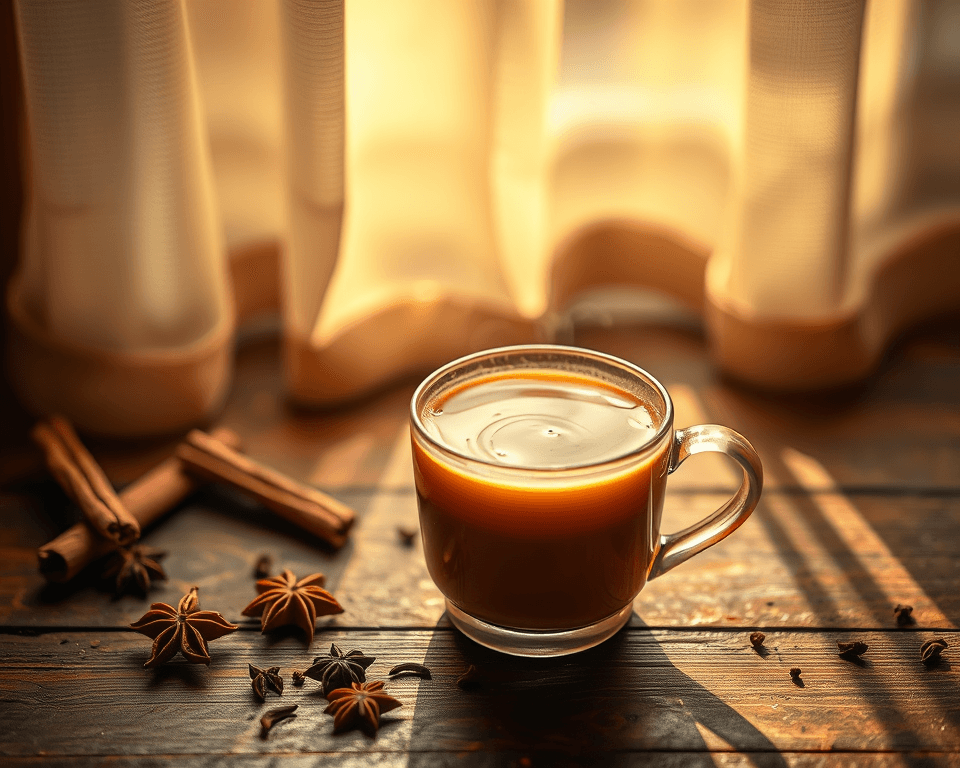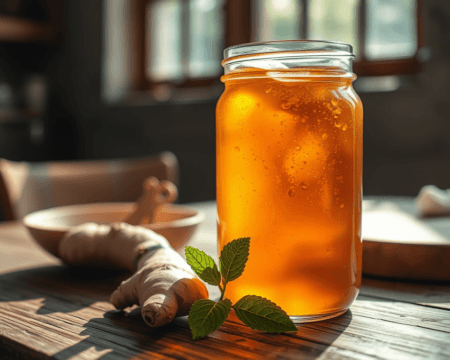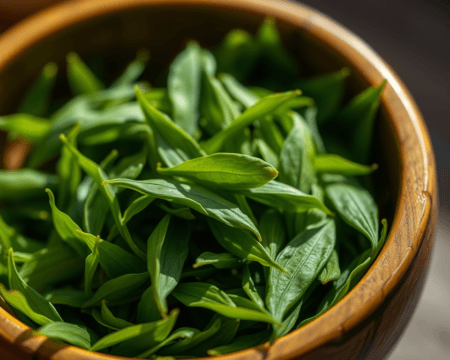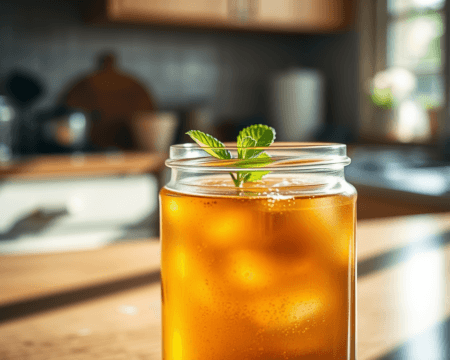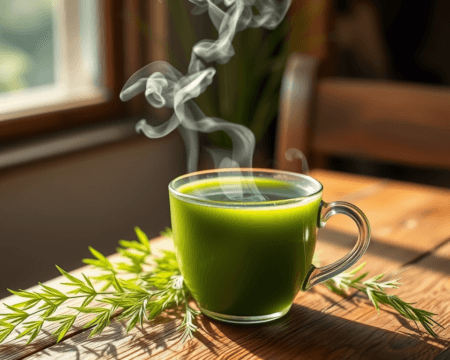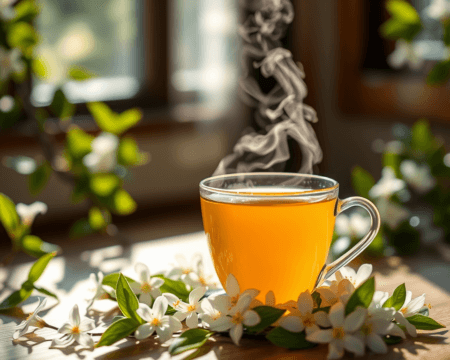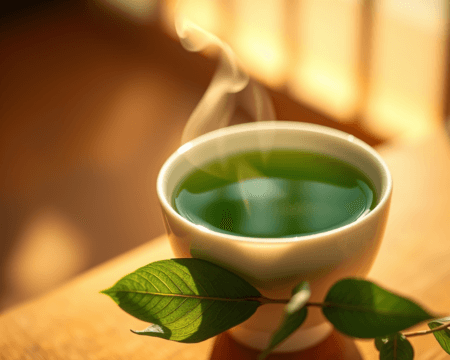When I first sipped my first cup of chai, the creamy texture and spiced aroma felt like a warm hug on a cold night. Little did I know that this comforting drink could also impact my sleep patterns. As I’ve explored this fascinating topic, I found that chai tea isn’t just about cozy vibes; it’s a mix of caffeine, spices, and cultural history that shapes how we feel, especially when it comes to sleep.
Key Takeaways
- Chai tea typically contains caffeine — how you respond to it can significantly affect your sleep.
- Ingredients like cinnamon and ginger in chai have relaxing properties that can promote better sleep.
- Research shows different reactions to chai tea, depending on personal caffeine sensitivity and timing of consumption.
- Decaffeinated chai options exist, making it possible to enjoy the flavors without the jitters before bed.
Understanding Chai Tea and Its Ingredients
What Is Chai Tea, and What Are Its Components?
Chai tea, often referred to as “masala chai,” is essentially a spiced tea blend that’s rich in flavor and tradition. The base is usually black tea, combined with a medley of spices like cinnamon, ginger, cardamom, and sometimes even cloves or black pepper—all depending on the recipe. It’s typically brewed with milk—creating a creamy, full-bodied drink that can make your taste buds dance.
Now let’s break it down:
- Black Tea: The main player here, packed with both antioxidants and caffeine.
- Spices: Each spice comes with its own talent show. For instance, cinnamon has been linked to aiding digestion, while ginger can help with inflammation. Cardamom doesn’t just add flavor; it’s also a natural antidote for anxiety.
- Milk: Adds that creamy texture, which can be pleasant before bedtime.
If you’re interested in making a cup yourself, a basic chai recipe might look something like this:
- Brew black tea with water and your chosen spices.
- Add milk and sweetener to taste.
- Strain and enjoy!
The Impact of Caffeine in Chai Tea
Now, let’s talk caffeine. A standard cup of chai tea has about 40-70 mg of caffeine, which is lower than coffee but can still pack a punch if you’re sensitive.
Caffeine affects everyone differently. If you’ve ever found yourself wide awake after a late afternoon coffee, you might already know that feeling well. The truth is: caffeine blocks the adenosine receptors in your brain. Adenosine is that sleepy hormone that builds up throughout the day. This means if you’re sipping chai too close to bedtime, you might find yourself tossing and turning instead of drifting off.
Other Ingredients in Chai and Their Effects on Sleep
Here’s where chai gets interesting. Beyond caffeine, its ingredients also contribute to how awake or relaxed you feel.
Spices like cinnamon have antioxidant properties that may help reduce inflammation and improve sleep quality. Ginger is another superstar with sedative properties, making it a great addition to your evening routine. Cardamom, revered in Ayurvedic medicine, is known for its ability to calm the nervous system.
When these ingredients work together, they can create a delightful balance that may lead to improved relaxation and sleep quality. But remember, moderation is key! Overindulgence in any one spice can shift that balance.
Does Chai Tea Make You Sleepy? Exploring the Science
Research Findings on Chai Tea and Sleep
Here’s where it really gets juicy. Research on chai tea and sleep might not be exhaustive yet, but there are a few compelling studies worth noting. For example, certain studies suggest that consuming beverages high in caffeine in the evening – including chai – can negatively impact sleep patterns. That said, components like ginger and cinnamon might still play a role in promoting relaxation.
Many scientific studies document that people experience varying effects of chai tea on sleep quality. For some, the soothing spices enhance relaxation, even counteracting some of the caffeine’s “get-up-and-go” effects. But here is the kicker: For others, especially those with a lower caffeine tolerance, even a traditional cup of chai can wreak havoc on their sleep cycle.
Expert Opinions on Chai Tea Consumption and Sleepiness
What do the experts say? Nutritionists often recommend considering your personal caffeine tolerance when throwing back a cup of chai. A wellness coach might tell you that integrating chai into your routine can offer both comfort and health benefits, provided you don’t overdo it right before bed.
Sleep specialists suggest that if you find chai helps ease your anxiety or promotes relaxation, it could be beneficial, especially if it’s part of a calming evening ritual. However, for those who’ve had bad experiences with caffeine, it might be wise to skip that cup after dinner.
Cultural Perspectives on Chai Tea and Sleep
Chai Tea Traditions in Different Cultures
Chai is not just a drink; it’s a cultural symbol. In various places like India, chai isn’t merely sipped; it’s experienced—often shared among family and friends during quality time. Drinking chai before sleep is part of a larger nightly ritual in many cultures, focusing on community and unwinding. This cultural significance is hard to overlook, as it revolves around socializing, storytelling, and relaxation.
Interestingly, the spice selection can vary from region to region, adding a richness to this beloved beverage. In some cultures, chai is a staple at gatherings, turning every sip into a moment to bond or decompress.
Anecdotal Experiences: Chai Tea Before Bed
You’d be surprised how many people have personal stories about chai and sleep. I’ve chatted with friends who swear by a cup of chai to unwind after a chaotic day. Some even claim it helps them sleep – a natural sleeping potion. And then there are folks who had their first taste of chai only to discover it kept them tossing and turning all night.
You might connect with people who share their own experiences about bedtime rituals that incorporate chai, and how it’s transformed their winding down process. Even if the studies are still ongoing, anecdotal evidence sheds light on how chai fits into people’s lives and routines.
Timing and Consumption Levels of Chai Tea
Best Times to Consume Chai Tea for Optimal Sleep
Timing can make all the difference when it comes to chai consumption. If your goal is to sip your way to serenity, here are a couple of guidelines to consider. Enjoying a cup of chai tea early in the evening (think about 5 to 6 PM) can allow ample time for the caffeine to wear off and leave you with just the comforting spice influence as you head to bed.
Conversely, indulging in a chai at 8 PM or later? That’s a gamble. Whether it’s the boost from the caffeine or the explosion of spice flavor, it might just keep you wide awake, scrolling through TikTok instead of drifting off.
Caffeine Sensitivity and Its Relation to Chai Tea
Everyone’s got different levels of caffeine sensitivity, like we all have preferences in our chai spice blends. Some people can drink coffee late in the day and sleep like a baby, while others find themselves wide awake after just a sip of chai.
Monitoring your personal caffeine tolerance is essential. If you know your limits, you can still enjoy chai without jeopardizing your sleep. Just remember, moderation is key! Maybe start with less caffeine-heavy versions or use fewer caffeinated spices before bed.
Exploring Decaffeinated Versions and Alternatives
The Benefits of Decaffeinated Chai Tea
For those who love chai but might need to show caffeine the door, decaffeinated chai options are widely available. Think about brands like Tazo or Celestial Seasonings that offer great-tasting caffeine-free alternatives. These can deliver that warmth and flavor you crave without the sleepless side effects.
Not only do these versions allow you to sip on your favorite beverage before bed, but they’re also often packed with the same spices that bring those soothing properties. Just picture curling up with a mug of decaf chai as you wind down your day—it’s bliss.
Comparison of Chai Tea’s Caffeine Content with Other Teas
Chai’s caffeine content shines a unique spotlight on how it compares to other popular teas. Here’s a quick look at how chai stacks up next to some of its peers:
| Tea Type | Caffeine Content (mg per 8 oz) |
|---|---|
| Chai Tea | 40-70 |
| Green Tea | 20-45 |
| Black Tea | 40-70 |
| Herbal Tea | 0-10 (most are caffeine-free) |
From this table, you can see that while chai’s caffeine content can be comparable to black tea, it usually offers a delightful mix of spices that can promote relaxation and comfort—especially when compared to the more subtle green or herbal teas.
In summary, chai tea is more than just a drink; it’s a beautiful blend of culture, health benefits, and caffeine complexity. Whether it helps you unwind or keeps you alert, understanding its impact starts with how you choose to enjoy it. If you craft your chai rituals with care, you might just find that perfect cup to match your needs, day or night.
Frequently Asked Questions
Is chai tea high in caffeine compared to regular black tea?
Chai tea generally contains a moderate amount of caffeine, similar to black tea. A typical serving of chai can contain about 30-70 mg of caffeine, depending on how it’s brewed and the quantities used. If you’re sensitive to caffeine, consider reducing the serving size or opting for decaffeinated versions.
Can I drink chai tea before bed?
While chai tea has caffeine, many people can still enjoy it before bed without issues. To avoid sleep disturbances, consider having chai earlier in the day or choose a decaffeinated option. The soothing spices may even help promote relaxation despite the caffeine content.
What are the benefits of the spices in chai tea?
Chai tea typically includes spices like cinnamon and ginger, which possess anti-inflammatory and antioxidant properties. These spices may improve digestion, boost immunity, and enhance overall wellness, making chai a flavorful and healthful beverage choice.
Are there any health risks associated with drinking chai tea?
Drinking chai tea in moderation is safe for most people. However, excessive caffeine consumption can lead to insomnia, anxiety, and increased heart rate. Additionally, those with specific health conditions, such as heart issues or certain allergies, should consult a physician before consuming chai regularly.
What are some popular variations of chai tea?
Chai tea can be personalized in numerous ways. Popular variations include adding vanilla, cardamom, or even a splash of milk alternatives like almond or oat milk. Some enjoy it spiced up with nutmeg or even a bit of sweetener for enhanced flavor.
How can I make my own chai tea at home?
Making chai tea at home is easy! Start by brewing black tea with water, then add spices like cinnamon, ginger, cloves, and cardamom. Let it steep for about 10 minutes, then strain and add milk or milk alternatives, sweetening to taste.
What is decaffeinated chai tea, and how is it different?
Decaffeinated chai tea is made from the same spices and tea leaves but has the caffeine removed. This allows you to enjoy the rich flavors and potential benefits of the tea without the stimulating effects of caffeine, making it a perfect choice for bedtime.
Can chai tea help with anxiety or stress?
The warming spices in chai tea, particularly cinnamon and ginger, can have calming effects that might help reduce stress. While it may not be a substitute for medical treatment, incorporating chai as part of a relaxing evening routine could enhance feelings of calm.
Does the preparation method of chai tea impact its health benefits?
Yes, the preparation method can affect the potency of the spices and tea. Simmering chai for longer with more spices can extract greater health benefits and flavors. Experimenting with steeping times and ingredient ratios can help you customize your chai to get the most benefits.




